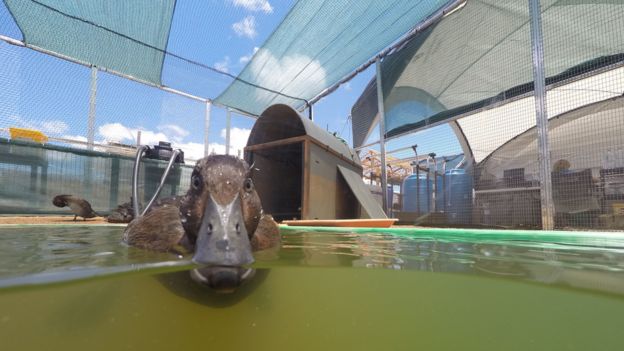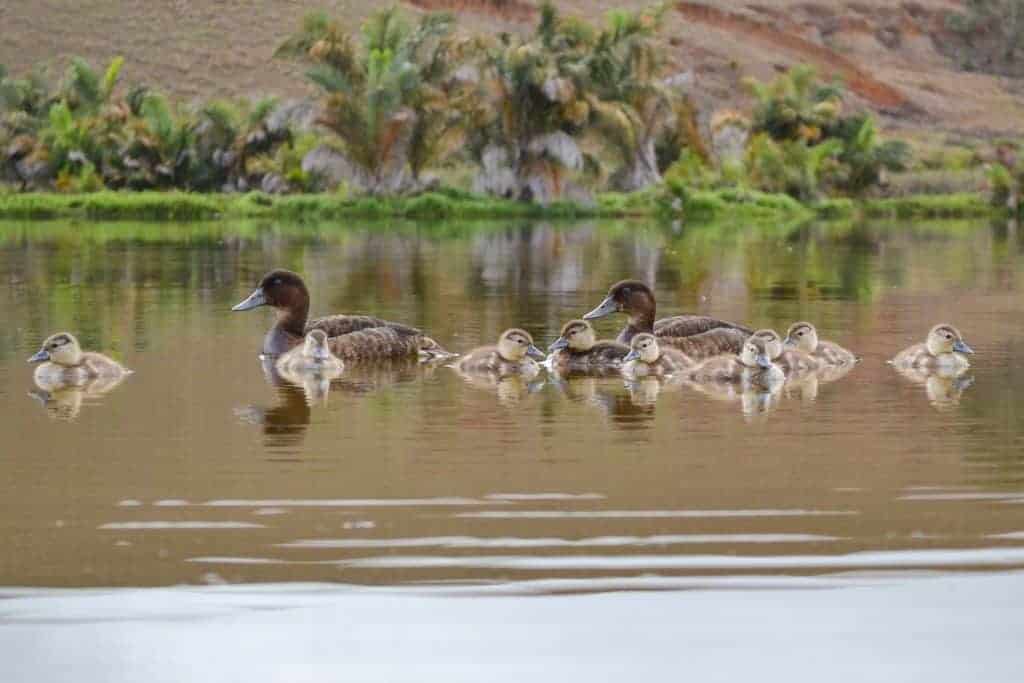Madagascan Pochard

On 17th january 2020, WWT released the news that the pioneering conservation project, to save the world’s rarest duck, hit a key milestone well ahead of expectations.
A total of 12 Madagascar pochard ducklings have been sighted on Lake Sofia, a remote site in northern Madagascar, where 21 captive-bred pochards, known locally as ‘Fotsimaso’, were released by conservationists at WWT and Durrell Wildlife Conservation Trust in December 2018. This is the first step in a long-term project to establish a new population.
This magnificent discovery of two broods – of eight and four – has defied expectations as diving ducks normally breed for the first time at two years old.
Aythya innotata
Thought to be extinct for 15 years, the endemic Madagascar Pochard was re-discovered on Lake Matsaborimena in the North of Madagascar in 2006, by biologists from the Peregrine Fund. This volcanic crater-lake provided a safe environment for the 25 adult birds, however, its sheer sides and deep water made it impossible for ducklings to survive. In 2009 Aviculturalists from the Wildfowl and Wetlands Trust (WWT) and Durrell Wildlife Conservation Trust brought eggs into captivity and initiated a captive breeding program for the species in Antsohihy, Madagascar. By 2017 over 90 Pochard were held at the Madagascan breeding centre. 2018 saw the first releases of captive bred Pochard back into the wild; 21 Juveniles were released onto Lake Sofia, utilising a novel ‘floating aviary’. More releases are planned for the foreseeable future.
This pochard is a sedentary species, that does not migrate and historically inhabited shallow inland lakes and marshes. The draining of wetlands, intensification of rice agriculture and the introduction of foreign fish species led to the loss of this species from former strongholds, such as Lake Alaotra. Feeding predominantly by diving, this species, like other Aythya sp. is omnivorous and feeds on aquatic invertebrates and submerged vegetation.

The breeding season is concentrated around the onset of the rainy season from December- July. Females build nests in thick aquatic vegetation and lay between 6 and 10 eggs in a clutch.
This species is a perfect example of how captive breeding can be utilised to save a species from the brink of extinction.
Share this page